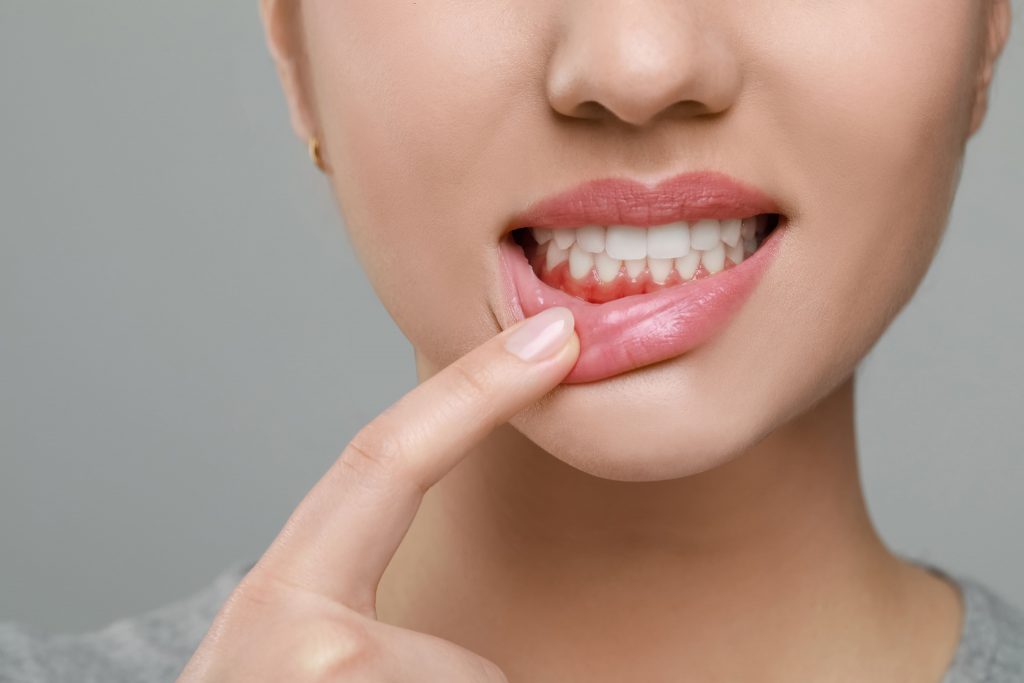What is gingivitis?
Gingivitis is the earliest stage of gum disease (periodontal disease). It develops when plaque, tartar and bacteria build up on your teeth, causing red, swollen, bleeding gums.
You can successfully manage gingivitis, especially with the help of a dentist. But left untreated, gingivitis can lead to periodontitis (a more severe type of gum disease involving bone loss in your jaw).
Who gets gingivitis?
Gum disease is more likely to occur in:
People assigned male at birth (AMAB), though researchers aren’t sure why. It could have to do with hormones or that people AMAB are more likely to get related diseases.
People living in poverty and those with less than a high school education. These factors are tied to a number of diseases.
People who smoke, as smoking weakens your body’s ability to fight infection.
What causes gingivitis
As mentioned above, one of the main causes of gingivitis is due to the effects of bacterial plaque deposits, an adhesive film composed mainly of bacteria, but also of saliva proteins, sugars and acids, (also a major cause of tooth decay) which accumulates on the teeth above and below the gums.
When plaque is not removed, it turns into a hard deposit called tartar (or calculus) that becomes trapped at the base of the tooth. Plaque and tartar irritate the gums, which become inflamed as the body’s natural immune response to invasion by foreign organisms.
Other questions related to Gingivitis: What is it and how is it cured?
Main symptoms of gingivitis:
Itching sensation, red, swollen, tender gums that bleed after brushing your teeth, and even bad breath are some of the most common symptoms of gingivitis.
-Swollen and red, white or purple gums, instead of their usual pink color.
-Bleeding gums during tooth brushing.
-Pain on touch
-Appearance of mouth ulcers.
-Depending on the severity with which you suffer from this disease, you may notice one or more symptoms.
If you have any of these symptoms, it is time to go to a periodontics appointment

What are the risk factors of gingivitis?
Gingivitis can affect everyone, with higher risks in the presence of the following factors:
-Poor oral hygiene
-Dry mouth
-Tobacco chewing or smoking
-Malnutrition and deficiency of vitamin C
-Older ages
-Improper tooth caries filling or crooked teeth
-Medical conditions including leukemia, HIV/AIDS, cancer treatment, and certain viral or bacterial infections
-Certain epilepsy medications, calcium channel blockers, anti-hypertensive medications
-Hormonal changes of pregnancy, menstruation, and taking birth control pills.
-Genetics
What are the complications of gingivitis?
Chronic gingivitis may lead to complications such as cerebrovascular and coronary artery diseases, diabetes, respiratory diseases, and rheumatoid arthritis because bacteria causing periodontitis may enter the bloodstream through the inflamed gums. However, more research is needed.
Trench mouth or necrotizing ulcerative gingivitis (NUG) is a severe form of gingivitis. It is an infection that causes pain, bleeding gums, and ulcerations.
Contact DentalOne
Now that you know more about Gingivitis: What is it and how is it cured?, if you believe you may be suffering from this form of gum disease, make sure to contact your dentist. They can diagnose and treat any underlying issues with antibiotics or other medications, as well as give you advice on how to care for your teeth at home. If gingivitis has prevented you from living a normal life, let us help you get rid of it once and for all. You deserve a healthy and happy mouth!

